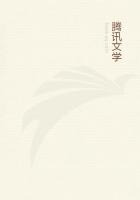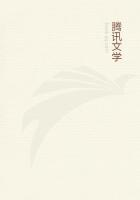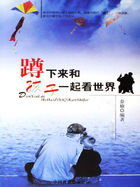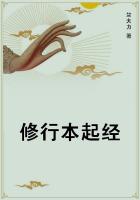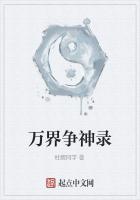In the later analysis of language, we trace the opposite and contrasted elements of the individual and nation, of the past and present, of the inward and outward, of the subject and object, of the notional and relational, of the root or unchanging part of the word and of the changing inflexion, if such a distinction be admitted, of the vowel and the consonant, of quantity and accent, of speech and writing, of poetry and prose. We observe also the reciprocal influence of sounds and conceptions on each other, like the connexion of body and mind; and further remark that although the names of objects were originally proper names, as the grammarian or logician might call them, yet at a later stage they become universal notions, which combine into particulars and individuals, and are taken out of the first rude agglomeration of sounds that they may be replaced in a higher and more logical order. We see that in the simplest sentences are contained grammar and logic--the parts of speech, the Eleatic philosophy and the Kantian categories. So complex is language, and so expressive not only of the meanest wants of man, but of his highest thoughts; so various are the aspects in which it is regarded by us. Then again, when we follow the history of languages, we observe that they are always slowly moving, half dead, half alive, half solid, half fluid; the breath of a moment, yet like the air, continuous in all ages and countries,--like the glacier, too, containing within them a trickling stream which deposits debris of the rocks over which it passes. There were happy moments, as we may conjecture, in the lives of nations, at which they came to the birth--as in the golden age of literature, the man and the time seem to conspire; the eloquence of the bard or chief, as in later times the creations of the great writer who is the expression of his age, became impressed on the minds of their countrymen, perhaps in the hour of some crisis of national development--a migration, a conquest, or the like. The picture of the word which was beginning to be lost, is now revived; the sound again echoes to the sense; men find themselves capable not only of expressing more feelings, and describing more objects, but of expressing and describing them better. The world before the flood, that is to say, the world of ten, twenty, a hundred thousand years ago, has passed away and left no sign. But the best conception that we can form of it, though imperfect and uncertain, is gained from the analogy of causes still in action, some powerful and sudden, others working slowly in the course of infinite ages. Something too may be allowed to 'the persistency of the strongest,' to 'the survival of the fittest,' in this as in the other realms of nature.
These are some of the reflections which the modern philosophy of language suggests to us about the powers of the human mind and the forces and influences by which the efforts of men to utter articulate sounds were inspired. Yet in making these and similar generalizations we may note also dangers to which we are exposed. (1) There is the confusion of ideas with facts--of mere possibilities, and generalities, and modes of conception with actual and definite knowledge. The words 'evolution,' 'birth,' 'law,' development,' 'instinct,' 'implicit,' 'explicit,' and the like, have a false clearness or comprehensiveness, which adds nothing to our knowledge.
The metaphor of a flower or a tree, or some other work of nature or art, is often in like manner only a pleasing picture. (2) There is the fallacy of resolving the languages which we know into their parts, and then imagining that we can discover the nature of language by reconstructing them. (3)
There is the danger of identifying language, not with thoughts but with ideas. (4) There is the error of supposing that the analysis of grammar and logic has always existed, or that their distinctions were familiar to Socrates and Plato. (5) There is the fallacy of exaggerating, and also of diminishing the interval which separates articulate from inarticulate language--the cries of animals from the speech of man--the instincts of animals from the reason of man. (6) There is the danger which besets all enquiries into the early history of man--of interpreting the past by the present, and of substituting the definite and intelligible for the true but dim outline which is the horizon of human knowledge.


